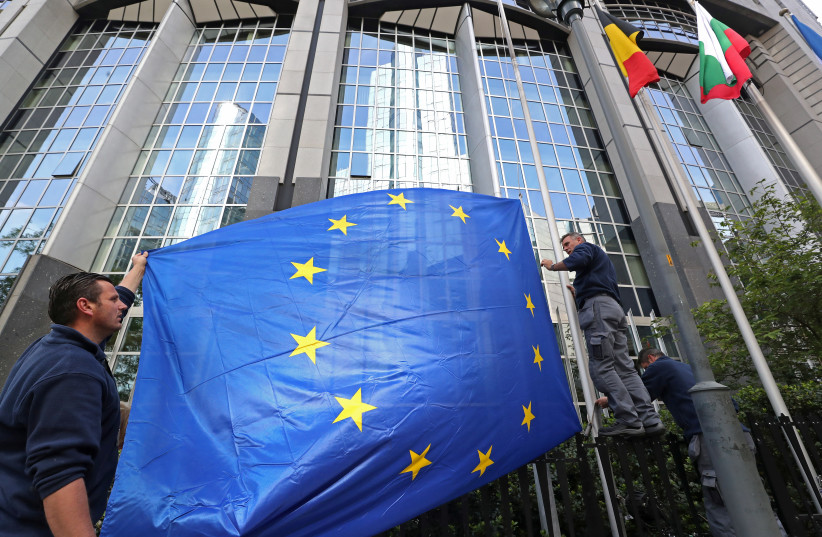The European Union agreed in principle on Monday to sanction settlers engaged in violent actions against innocent Palestinians after Hungary dropped its veto of the move.
“The political agreement is there,” EU foreign policy chief Josep Borrell said as he explained that more steps were needed before it could be fully adopted and put into practice.
The United States and the United Kingdom have already issued sanctions against such Jewish extremists.
The EU needed consensus from all 27 of its member states to follow suit. Hungary had been the sole country opposing such a step.
On Monday, Budapest rescinded its objection to the sanctions, and the EU moved forward with the matter.
The EU moves forward
A diplomatic source told The Jerusalem Post that Budapest now considers it wiser to allow the issue of settler sanctions to go forward in exchange for movement on other issues, such as expanding the list of Hamas terrorists personally sanctioned by the EU.

The foreign ministers also discussed the war in Gaza and the pending Israeli military operation in Rafah, which has already drawn sharp opinions from top EU officials. The continuing humanitarian crisis in Gaza will likely also be discussed.
“There was clear consensus” that the humanitarian crisis created by the Gaza war is “unacceptable,” Borrell said.
European countries have been very clear on this point, which German Chancellor Olaf Scholz underscored when he was in Israel on Friday, Borrell said.
Borrell told reporters that the ministers held an initial discussion on whether the EU-Israel Association agreement would be impacted by the Gaza war. He had previously said that the conversation was held at Ireland’s and Spain’s request.
The EU-Israel agreement is the founding document that binds Israel’s relationship with the bloc, including its free trade agreement.
According to Article 2 of the 1995 document, the agreement is based on Israel’s adherence to human rights and democratic values.
At issue is whether the Gaza war could cause a change or suspension of the agreement, which includes, among other things, a free trade understanding between Israel and the bloc.
Borrell said there wasn’t strong support for action on the association agreement and that consensus on this matter would be “difficult to get.”
Member states, he explained, preferred to hold further discussions with Israel on the Gaza war. One option would be to invite Foreign Minister Israel Katz to Brussels for talks.
Separately, newly appointed Palestinian Authority Prime Minister Mohammad Mustafa could also be invited, Borrell said.
